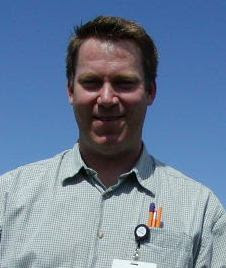I’ve become more and more fascinated by the research that has come out regarding learning for students and the brain and understanding how students learn is a key endeavor of mine.
 In a course of mine at Walden University we are studying the facets of the concept of Teacher as Professional. This week we are focusing on what makes an expert teacher. We read an article from the Journal of Staff Development (Garmston) that discusses the journey of teacher along the continuum from novice to expert. In this article he discusses six areas in which expert teachers must be knowledgeable; Content, pedagogy, students and how they learn, self-knowledge, cognitive processes of instruction, and collegial interaction. When I think of these six areas I think of them as irrevocably intertwined. It is important to be an expert in the content matter you are teaching but you must also have a good understanding of your own learning styles so that you don’t teach to only one style of learner. Garmston states that “Knowledge of one’s own patterns and preferences supports informed decision making and the overcoming of egocentric teaching choices.” (p. 2) This self-knowledge in turn affects the cognitive processes of instruction where the teacher uses a wide variety of teaching modes and “take an allocentric perspective, employing the learner’s frame of reference in instructional planning, teaching, and evaluation.” (p. 2)
In a course of mine at Walden University we are studying the facets of the concept of Teacher as Professional. This week we are focusing on what makes an expert teacher. We read an article from the Journal of Staff Development (Garmston) that discusses the journey of teacher along the continuum from novice to expert. In this article he discusses six areas in which expert teachers must be knowledgeable; Content, pedagogy, students and how they learn, self-knowledge, cognitive processes of instruction, and collegial interaction. When I think of these six areas I think of them as irrevocably intertwined. It is important to be an expert in the content matter you are teaching but you must also have a good understanding of your own learning styles so that you don’t teach to only one style of learner. Garmston states that “Knowledge of one’s own patterns and preferences supports informed decision making and the overcoming of egocentric teaching choices.” (p. 2) This self-knowledge in turn affects the cognitive processes of instruction where the teacher uses a wide variety of teaching modes and “take an allocentric perspective, employing the learner’s frame of reference in instructional planning, teaching, and evaluation.” (p. 2)
Understanding a learning style or frame of reference is important but we must also delve deeper into how the students learn and teachers can learn from each other through collaborative reflection. This also requires us to reconsider current teaching trends and critically analyze popular research into learning including the brain-based learning research that has come out. Pat Wolfe in an article from her website cautions against implementing strategies that have not been tested in classrooms (Brain Research and Education: Fad or Foundation?).
As a Reading First (http://www.readingfirstsupport.us/) school we are conducting a book study on “How the Brain Learns to Read” (Sousa, 2005). What I’ve found interesting are how male and female brains process language. In the book, Sousa confirms that "Male brains tend to process language in the left hemisphere, while most female brains process language in both hemispheres." (pp. 14, 15) He goes on to mention that in females the nerve bundle connecting both hemispheres, the corpus callosum, is larger and thicker in females and he implies that information travels between the two hemispheres more efficiently in females and may account for why young girls often acquire spoken language more readily than boys. As a first grade teacher this idea merits more than passing consideration. We know from research that boys learn differently in many ways than girls do. The open question for now is “How do we capitalize on that research and differentiate learning for boys and girls?”
Garmston, R. J. (1998). Becoming expert teachers (Part one). Journal of Staff Development, 19(1). Copyright 1998 by National Staff Development Council. Reproduced with permission of National Staff Development Council in the format electronic usage via Copyright Clearance Center
Sousa, D. A., (2005). How the Brain Learns to Read. Thousand Oaks, CA: Corwin Press
Wolfe, P. (2003, Fall). Brain-compatible learning: Fad or foundation? Retrieved May 24, 2007, from http://www.mcli.dist.maricopa..edu/forum/fall03/brain.htmlReprinted with permission. From the December 2006 issue of The School Administrator.
Brain photo from Killermonkeys

5 comments:
Hi, I, too, am taking Teacher as professional at Walden. My area of brain interest runs in the book be Daniel Pink A whole New Mind and its counterpart by Howard Gardner Five Minds of the Future, I have just started the latter. The first was a fascinating read and very relevant to modern society and education. Check out the blog Carrot Revolution by dsgran, It is for us art ed types but full of brain research matter.
VG
I liked the blog Carrot Revolution(http://carrotrevolution.blogspot.com/) and his link to the teenagebrain(http://teenagebrain.blogspot.com/). It is very informative. It discusses some differences in males vs. females and does so from a teenage perspective.
Thanks!
I am a school psychologist for a public school system. I applaud your efforts to become an expert teacher. I am currently completing the brain-based learning certification process through Jenson Learning. I routinely offer training sessions for our teachers, offering a variety of topics. I have not yet checked out the carrotrevolution site, but I am eager to do so.
I am also taking Teacher as a Professional at Walden. I think that this type of research will revolusionize our classrooms in the way we teach females and males as well students with different learning styles. Thanks for your insights.
Monica
Post a Comment